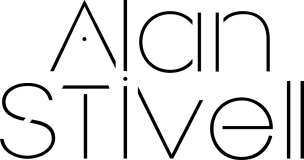IDENTITIES
Here, I’m revisiting a passage from my autobiography.
I was born, through paternal lineage, a “Breton from the outside”.
Later, cultural immersion made me become what the Breton language calls Breton (pronounced “BREtoñn“).
But the first identity is, of course, “DEN”, a human being (it’s worth noting that the Celtic word carries no masculine preference).
Gender is a matter of debate, or not, for each to decide.
Then, as for ethnicity and culture, the same observation applies: we are all mixed, all descended from diverse identities. The possible combinations are endless: all alike and all different. The pure Breton penn-kil-ha-troad, head-to-toe, 100%, does not exist! It is the vast richness of individuals and peoples, of origins and cultures.
When a particular identity objectively dominates, human freedom allows one to acknowledge it or not. One can claim a part of oneself that seems subjectively more important than others and express the will to belong to a country, to a people (even if one has lost the specific language). In my opinion, this is an inalienable right.
What I have just mentioned implies that two identities hold major importance for me: citizen of the world first, then Breton. I directly connect being Breton to being Celtic. I could say that after being human, I am Celtic and Breton. A quick word about the Celts. It’s almost universally written that the Celts were never a single people or ethnicity, let alone a race. The fact that we are all mixed, and our terrible historical antecedents, does not negate the value of any genetic research, which can be as useful for medicine as for the story of population movements. DNA tests have shown that it is no less true that modern Atlantic Celtic peoples have a strong convergence in their DNA. This DNA proves the privileged exchanges that took place over millennia, across the Celtic-Atlantic archipelago. Let’s dismiss the scoffing of “learned” individuals who confuse an ancient Celtic world from Asia Minor to the Atlantic with the reality, including the ethnic reality of modern Celtic peoples (with all the cautions about the dangerous use of this aspect). And what about Europe and France in my poly-identity?
Thirdly, I am indeed a citizen of Europe,
hoping that it improves in terms of human rights, including cultural and social rights, and that it gives more freedom to bridge-entities like Brittany, straddling state borders, a situation that actually affects half of us. And this reality, which
should be obvious, is hidden from most people.
Finally, I am also a French citizen, with a very strong French cultural influence. The peripheral territories, bridges between states, are recognized by everyone as national minorities. France recognizes them (almost) everywhere, yet is in total denial and fear when it comes to those it administers.
Do we still need to explain to some that Brittany is so much not a real region that it already needs two? Is it so difficult for many to understand that the United Kingdom includes several peoples, and that this is actually the case in all states? That is why the Breton language says Bro-C’hall for France without Brittany (nor Corsica, Alsace-Moselle, Occitania, Catalonia, Flanders, the Basque Country, and possibly Savoy), and it says Ar Frañs for France with its minorities. I prefer C’hwec’hkogn (Hexagon). Breton helps to understand the parallel with England versus the United Kingdom.
At these different identity levels, I could add the local ones: my birth and my year and a half in Auvergne may have influenced me (besides a taste for that type of mountains)? However, I had a strong influence from Paris. But if I was marked by vacations in Trinité-sur-Mer, Langoned, and the Gourin region, they forever made me (and my partner and our children) a Langonnetais (my friends and cousins agree). Dear residents of Lanvezhon and the Rennes region, forgive me for feeling less from there, despite genuinely enjoying living there for long months each year and meeting so many kind people. Likewise, for Carnac, which also brings me closer to childhood memories and other cousins.
I find it important to reiterate something that seems clear to me and is so rarely communicated. To summarize briefly, humanity is split in half between those holding to a monolithic identity, and the other half, who are “straddling identities”. Just like in almost all states, within the European territory of the French Republic (the Hexagon), there is a half of the population associated with an identity that could be called “Franco-French”. The other half straddles a bridge, a passageway: these are the Bretons, like seven other national minorities, whose people genuinely have a dual belonging, intermediate between “Franco-France” or the more elegant Francie and neighboring European countries. Within this half, there are also people of dual non-territorial belonging, perpetuating over multiple generations, or immigrants of varying recency. All these people make up this half (or maybe a little more?) of “bi-nationals” (unofficial). Accepting or not the facts is not optional. How can we ignore reality? This reality, once accepted, becomes a source of positivity, of creativity, and, once fully embraced, even peaceful. The Franco-Jacobin culture, supposedly universalist, but actually more like an ostrich, fears that any reference to these differences would inevitably lead to what it calls “communitarianism,” or worse, racist ideologies or practices. This primarily stems from the old confusion, so difficult to shake off, between horizontal difference (egalitarian) and vertical difference (hierarchical).
